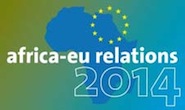Does RIPs spell ‘Regional Integration Promise’ or ‘Rest In Peace’? The mood at the 2013 African Economic Conference was clear - progress on regional integration in Africa has been slow. The EU is an obvious candidate to support African regional organisations’ (ROs) to drive the regional integration agenda, given its historic experience and diplomatic presence in the ROs’ member states. Yet the EU did not have a strong showing at the conference. Political issues continue to hamper the effective use of EU funds to promote regional integration. Despite the insistence that “we are the regions”, ...
In this ECDPM video, Klaus Rudischhauser, Deputy Director-General for Policy and Thematic Coordination at the European Commission, talks about where and how EU development assistance should be targeted. He says money should be given to those countries most in need, and that other forms of development initiatives – such as domestic resource mobilisation – should be used in upper-middle income countries. Development assistance is “seed money to drive processes, to promote reform and to assist the country in implementing those reforms.” He says that the Commission will “produce a policy document - before the summer ...
Florian Kratke co-authored this article. European Heads of State will be taking more than one shirt to the 22-23 November budget summit, anticipating lengthy negotiations for reaching the political agreement on future EU funding needed by the end of the year. EU insiders are expecting a deal to include cuts of up to €200 billion. A key question is how much development cooperation expenditure will be lost in the process. The revised “negotiation box” for the EU’s 2014-2020 Multi-Annual Financial Framework (MFF), presented by the Cyprus EU Presidency at the end of October, will serve ...
++ SERIES: ECDPM ANALYSIS OF NEW EU DEVELOPMENT POLICY REFORM PROPOSALS ++ EU Development Commissioner Piebalgs presented the EC’s Communication on budget support on October 13. This is amidst drastic changes in some of the EU member states’ attitudes and policies towards this aid modality. The Commission takes a strong position to improve budget support so it can deliver development results more effectively and efficiently. For different reasons this new budget support policy merits more attention. How to make aid more effective? Budget support as it evolved from the beginning of the new millennium tried ...
Last week, with little fanfare, not even a press release, the European Commission’s 2011 Annual Report and accompanying staff working paper annex on the European Union’s development and external assistance policies and their implementation in 2010 and the 2011 EU Donor Atlas were posted online. The 196-page annex to the annual report provides detailed information on the delivery of EU commitments, a geographical and thematic overview of implementation and an assessment of the management of aid for results. The EU Donor Atlas provides a detailed mapping of EU donor activities to facilitate planning and programming ...
On 29 June, the Commission came out with a Communication on the EU financial framework for the period 2014 – 2020. The media around Europe particularly picked up on a proposal presented in the Communication to introduce a financial transactions tax and a new VAT to finance part of the EU budget. This will reduce the direct contributions from Member States, which are based on the countries’ Gross National Income (GNI) and their national VAT resources. What also caught attention is the proposed level of EU spending. The Commission presents a multi-annual financial framework (MFF) ...
On 6 April, the OECD and the EU released figures for official development assistance flows in 2010. While the highest ODA levels ever where reached, donors are failing to reach their promises made in 2005 and the EU did not meet its collective target of 0.56% of GNI. Some countries, such as Germany, fell significantly short with reaching an ODA level of 0,38% only, despite strong economic growth. And prospects for increasing ODA in the future are not bright unless new financing for development can be mobilised. Besides the quantity, the quality of EU aid ...
Has the devolution of the Commission’s management of external assistance from its headquarters to its Delegations led to improved aid delivery? The European Court of Auditors answers this question in a Special Report published on 31 March. In particular, it looked at how far the objectives of improving the speed and quality of aid and establishing sound financial procedures have been achieved. The audit concludes that devolution has contributed to better aid delivery. However, the European Commission’s systems for measuring quality of aid are not sufficiently developed. The full potential benefits of devolution have, thus, not ...
Blending - the complementary use of grants and loans in external assistance to increase the volume of development finance - has emerged rapidly and is now common practice in development finance. The EU is currently considering establishing a “EU platform for external cooperation and development”, i.e. a mechanism for blending grants and loans. There is, however, currently a limited evidence base on the effects of blending. Whilst a sizeable literature exists about the theoretical use of loans and grants, there is little on how it works in practice, which methodology or procedure works best and ...
The European Commission is expected to launch a formal legislative proposal for the post-2013 EU Multi-Annual Financial Framework (MFF) by July 2011. In parallel to that the European Parliament’s Special Committee on the policy Challenges and Budgetary Resources for a Sustainable European Union (SURE) will propose a resolution in March 2011. Negotiations will then start between the EU Member States, the Council and the European Parliament. The process should end by the end of 2012 for the MFF, to enable one year (2013) to put in place the necessary legislation, and for implementation to start ...

















